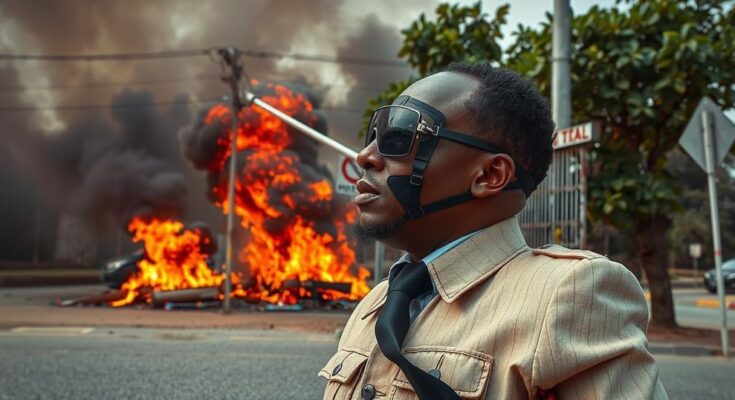Following Mozambique’s electoral court ruling that declared Daniel Chapo of the Frelimo party the winner of the October 9 elections, violence erupted across the country, leading to the deaths of at least 21 individuals, including two police officers. The unrest was chiefly instigated by supporters of the opposition candidate, Venancio Mondlane.
Mozambique has been engulfed in violence following the confirmation of Daniel Chapo as the winner of the disputed elections held on October 9. The country’s highest court sided with the ruling Frelimo party, igniting protests primarily led by supporters of the opposition candidate, Venancio Mondlane. As a direct result of the unrest, authorities reported 21 fatalities, including two police officers, amid widespread violence and looting across the nation.
The unrest in Mozambique is rooted in the recent electoral process, which was marred by disputes and allegations of opacity in the voting outcome. The Constitutional Council’s decision to validate Chapo’s victory in the presidential race has triggered significant backlash among those who supported Mondlane, whose substantial minority share of 24 percent has not sufficed to secure the presidency. Historical tensions surrounding electoral fairness in Mozambique underscore the current turmoil.
The tragic events in Mozambique highlight the fragility of democratic processes in regions with contentious electoral histories. With confirmed fatalities stemming from protests against the court’s ruling, it raises significant concerns regarding political stability and the capacity of governance mechanisms to ensure peace and order amid dissent. Continued monitoring and advocacy for transparent electoral practices are imperative to mitigate future conflicts.
Original Source: www.nytimes.com




